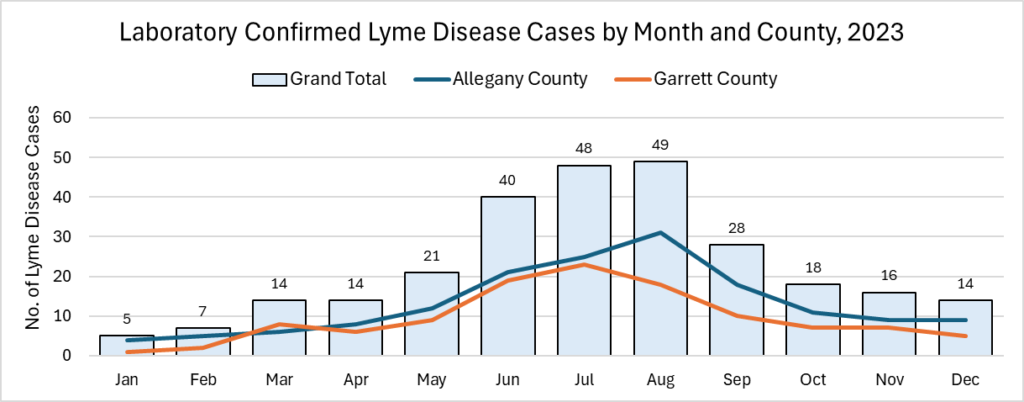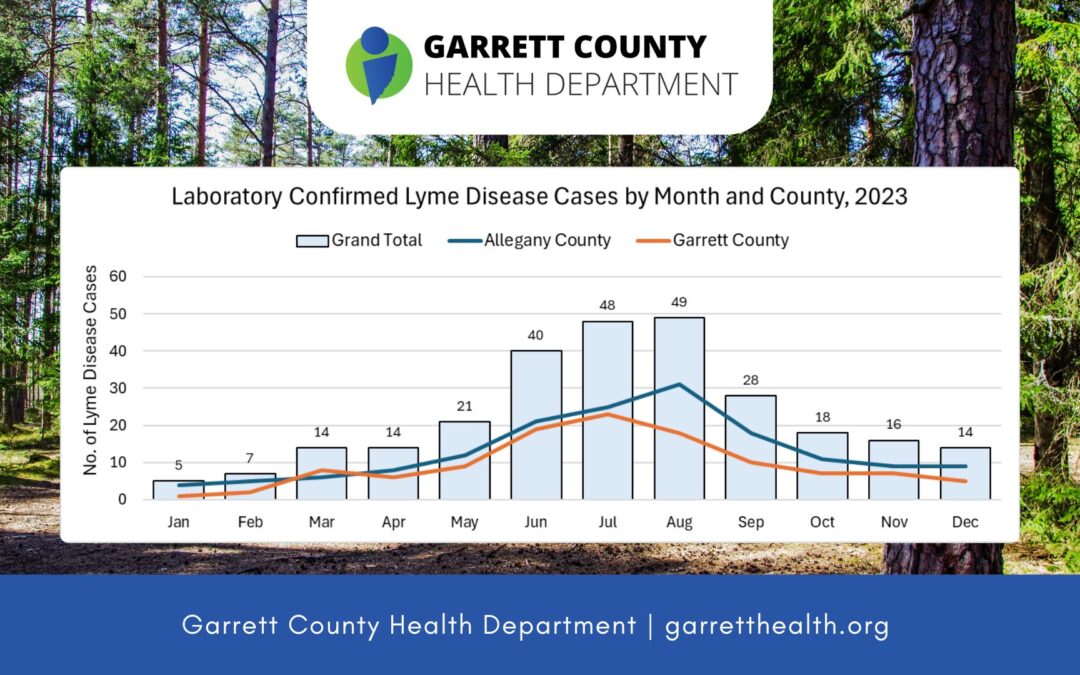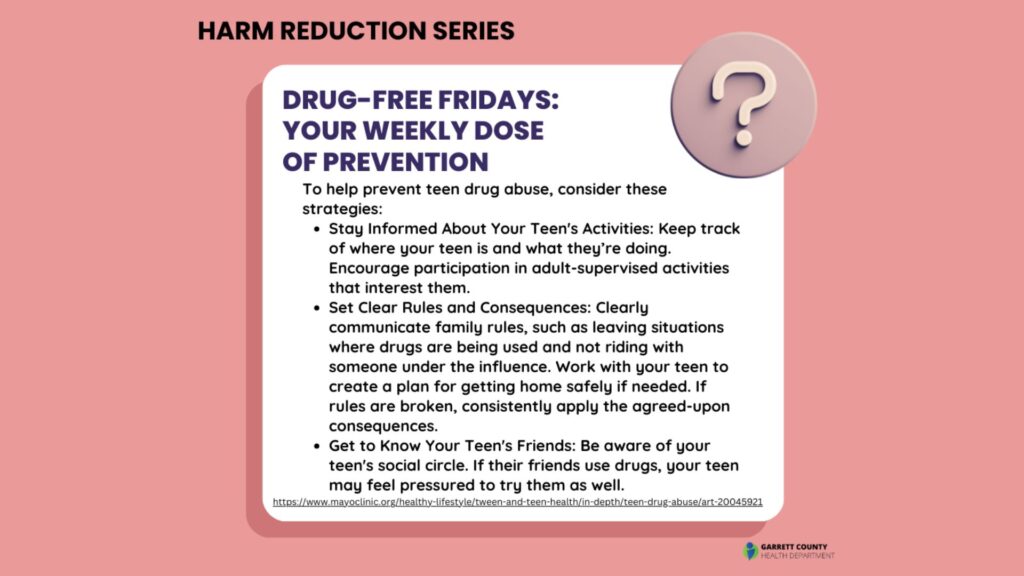By Julie Kebisek, MPH, Epidemiologist
May is Lyme Disease Awareness month, but it is important to remember that residents of Garrett and Allegany counties continue to be at risk of exposure to disease-carrying ticks year-round. Although the majority of tickborne disease cases are diagnosed in the summer months, Lyme disease cases were found in both counties every month of the year in 2023. Last year, nearly 300 people tested positive for Lyme disease in Garrett (n=115) and Allegany (n=159) counties, with the highest number of Lyme disease cases occurring in August (n=49). So, while it is important to be vigilant against ticks during the summer months, residents of Garrett and Allegany counties must remember to take steps to prevent tick exposure while spending time in potential tick habitats throughout the year.
Source: National Notifiable Disease Surveillance System

What types of tickborne diseases are found in Garrett and Allegany counties?
Lyme disease is the most common tickborne disease found in these counties, however, the ticks that are found in this area of the state can also carry other harmful diseases, including Anaplasmosis, Babesiosis, Ehrlichiosis, and Spotted Fever Rickettsiosis, among other less-common, but emerging diseases.
What types of habitats are disease-carrying ticks most commonly found?
Ticks prefer to live in wooded and grassy areas, including in residential yards. Ticks do not climb trees or stray far from the ground. Maryland, Pennsylvania, and West Virginia are all considered to be “high incidence” states for tickborne diseases. While spending time outdoors in these states, especially in wooded or grassy areas, it is recommended to take precautions against tickborne diseases.
Found a tick but can’t identify it? Submit the tick to Garrett County experts.
How can I prevent tickborne diseases?
Prevent tick bites in yourself, your family members, and pets by taking precautions when spending time in potential tick habitat. Identifying ticks and potential diseases they may carry can help with early recognition of symptoms if you become infected.
While spending time in or near potential tick habitats, limit direct contact with ticks by walking in the center of trails, wearing long pants tucked into socks, wearing light-colored clothes to more easily see ticks crawling on your body, and by using Environmental Protection Agency (EPA) registered insect repellents.
After spending time in or near potential tick habitats, you can prevent tickborne diseases by washing your clothing in hot water, then drying your clothing in a dryer on low heat for 90 minutes or high heat for 60 minutes. If you cannot wash your clothing, then put dry clothing into the dryer on high heat for 10 minutes to kill any potential ticks hidden in clothing.
Check yourself and your pets after spending time in potential tick habitats and safely dispose of any ticks you find. If you find a tick on yourself, do not be alarmed. Most tickborne diseases can only be transmitted after the tick has been feeding for 36-48 hours. The Centers for Disease Control and Prevention provides recommendations for tick bite prophylaxis to prevent Lyme disease, however, this may not always be necessary following a tick bite.
If you experience fever, headache, joint pain, muscle pain, or a rash 3-30 days after spending time in tick habitat, contact your healthcare provider.
Dogs can get ill and die from tickborne diseases too; talk to your veterinarian about how to ensure your pets are protected year-round from tickborne diseases.
Where can I learn more about ticks in Maryland?
- Garrett County Health Department:
- Maryland Department of Health and Hygiene:
- Centers for Disease Control and Prevention
- Occupational Safety and Health Administration
- Johns Hopkins Medicine: Ticks and Lyme Disease
- Farmers Market Nutrition Program for WIC Participants - June 2, 2025
- Gardening for Beginners - May 30, 2025
- 52 Weeks of Prevention – Week 46 - May 30, 2025









